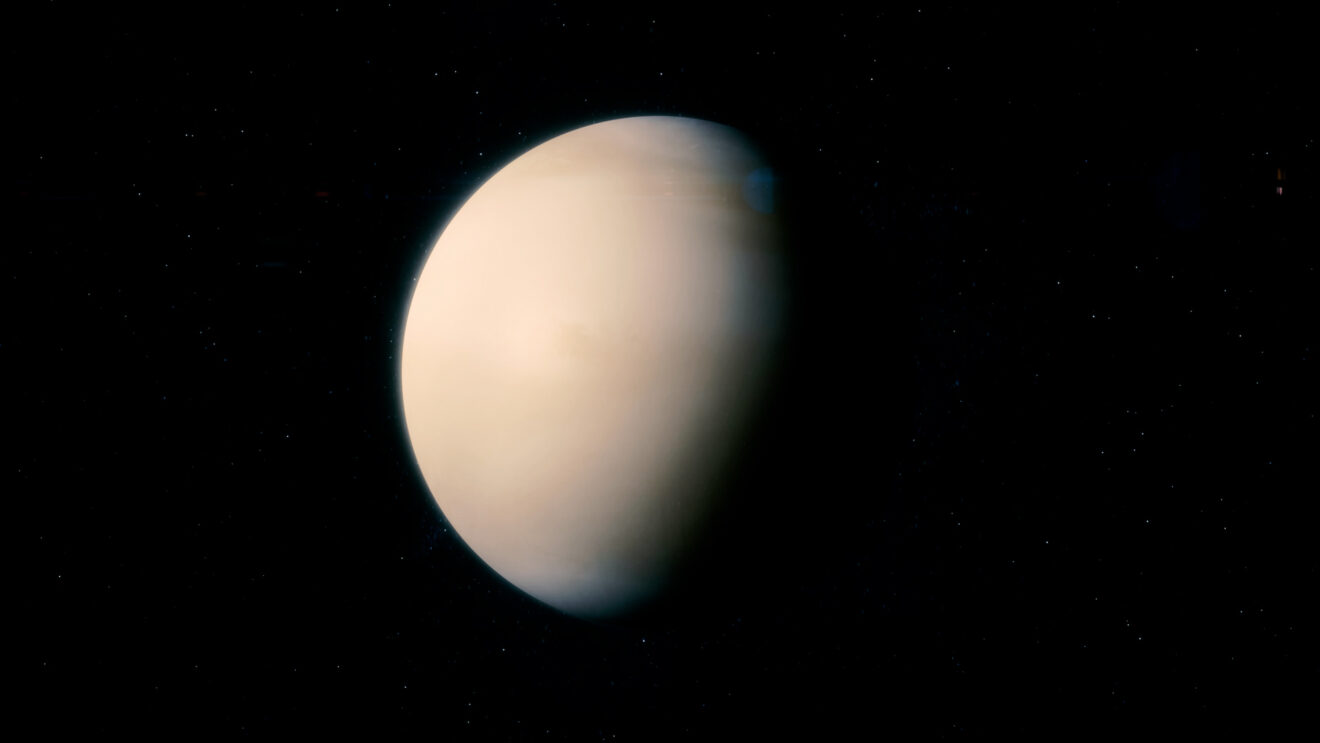Is there Life in the Clouds of Venus?

An international team of astronomers, led by Professor Jane Greaves of Cardiff University, announced the discovery of a rare molecule, phosphine, in the clouds of Venus. On Earth, this gas is only made industrially, or by microbes that thrive in oxygen-free environments.
Astronomers have speculated for decades that high clouds on Venus could offer a home for microbes – floating free of the scorching surface, but still needing to tolerate very high acidity. The detection of phosphine molecules, which consist of hydrogen and phosphorus, could point to this extra-terrestrial ‘aerial’ life. The new discovery is described in a paper in Nature Astronomy.
The team first used the James Clerk Maxwell Telescope (JCMT) in Hawaii to detect the phosphine, and were then awarded time to follow up their discovery with 45 telescopes of the Atacama Large Millimeter/submillimeter Array (ALMA) in Chile. Both facilities observed Venus at a wavelength of about 1 millimetre, much longer than the human eye can see – only telescopes at high altitude can detect this wavelength effectively.
Naturally cautious about the initial findings, Greaves and her team were delighted to get three hours of time with the more sensitive ALMA observatory. Bad weather added a frustrating delay, but after six months of data processing, the discovery was confirmed.
More information:
https://ras.ac.uk/news-and-press/news/hints-life-venus
https://earthsky.org/space/life-on-venus-phosphine-biosignatures







